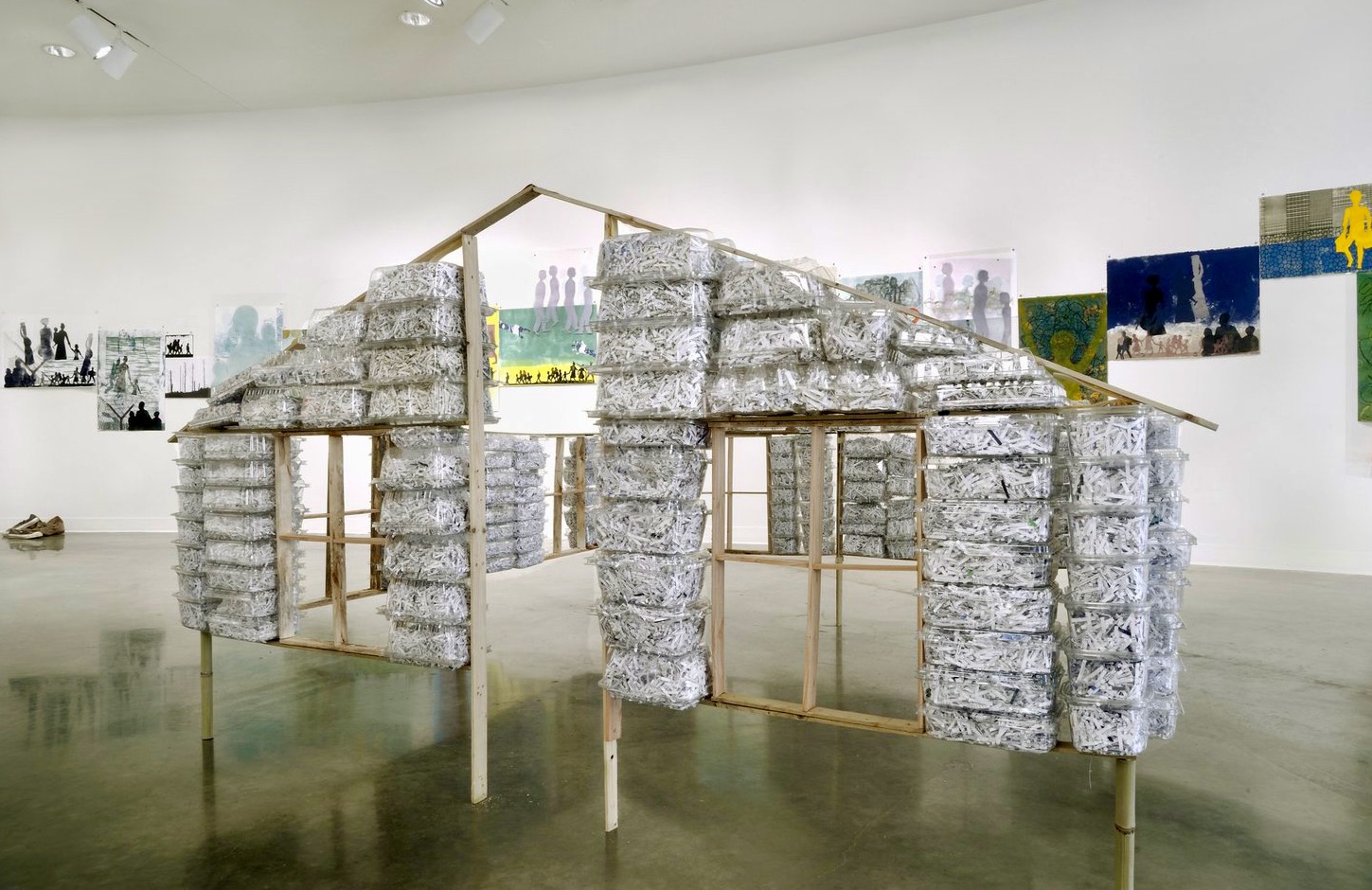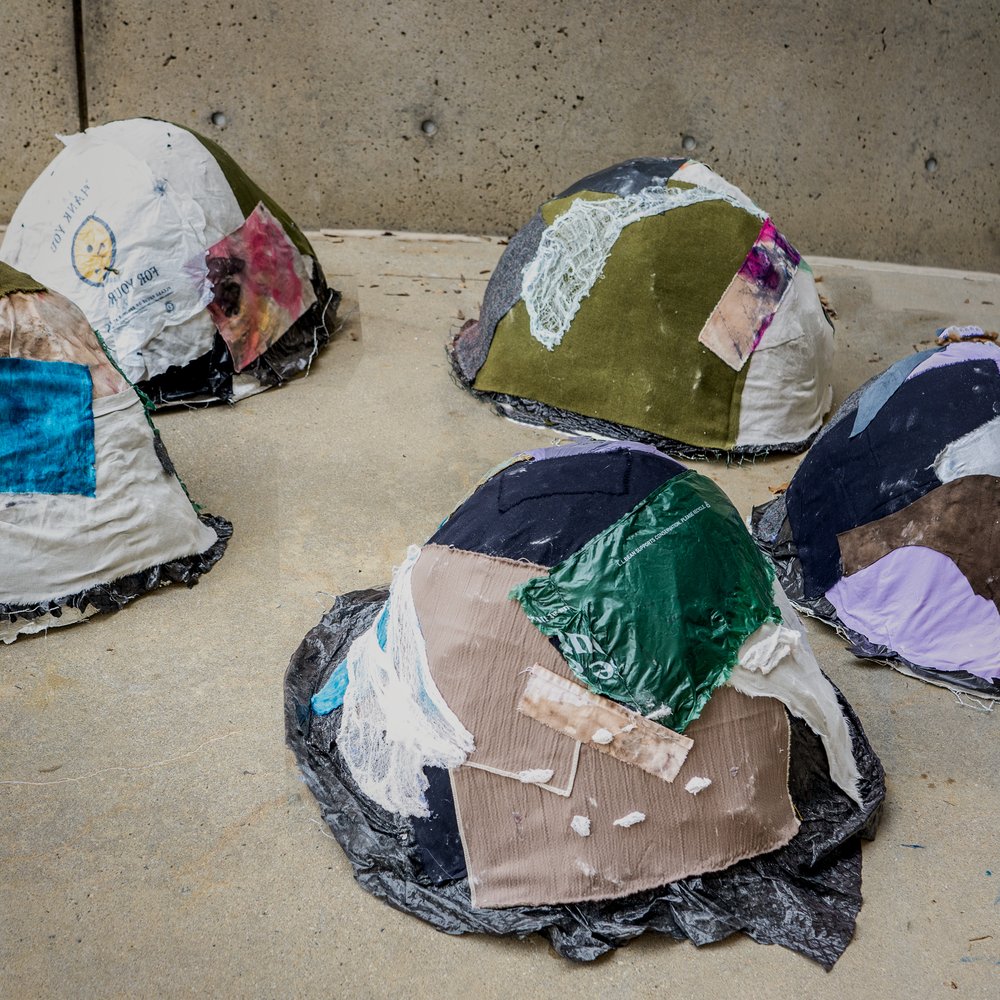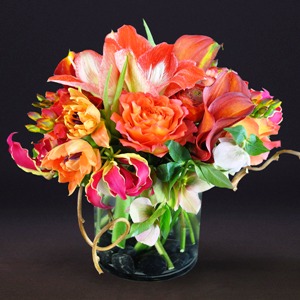The Human Flood
An important exhibition at American University on the human consequences of climate change.

The Human Flood is an exhibition at the American University Museum that opened in February and continues through August 11, 2024. It is curated by Laura Roulet. It is an unusually long stretch that spans the winter, spring, and summer exhibition schedules at the museum.
Conceived and created by Ellyn Weiss and Sondra N. Arkin, two incredible artists, who have collaborated for many years both in making installations and in curating exhibitions. A major part of their work over the past decade speaks directly to the existential threat posed by global climate change. The Human Flood is a glimpse into the lives of those uprooted by diminishing habitable land creating a sense of movement and insecurity, mirroring the displacement of refugees. Weiss and Arkin hope to challenge the audience to imagine the societal transformation necessary in the richer global North, which bears most responsibility for the activity creating climate change, to accommodate the challenges of migrations of this magnitude.
This site-specific, immersive installation, takes over the first-floor gallery and sculpture garden at the American University Museum. It reflects upon the mass migration of human populations caused by climate change. This continuing displacement of millions will have profound consequences in many dimensions that The Human Flood aims to examine.

Visitors to the installation will get a sense — through a variety of sculptural interventions, collaborative prints, photography, audio, and paintings — of diminishing habitable land, nomadic refugee scenarios, the human and societal impacts of this uprooting and the fracturing of family ties, uncertainty, poverty, and helplessness — and convey what it is like to leave behind a life upon migration.
The Human Flood isn't just about raising awareness – it's about forging compassion and empathy. By confronting viewers with the raw realities of forced migration, Ellyn and Sondra present a challenge to consider the human cost of environmental change and societal upheaval. They compel viewers to imagine themselves in the stories of those swept up in the ever-rising tide of displacement and consider changes in policy to shape solutions.
Ellyn has said “I work with a wide variety of materials in 2 and 3 dimensions, including wax, oil bar, dry pigment, wire, recycled plastic bags, plasti Dip and tar. I allow the materials to show me their properties, Much of my work over the past 10 years has been informed by environmental and political issues, some involving collaborative installations and curating. I am committed to engagement with the world around me. I serve on the Board of Directors of the Union of Concerned Scientists, am Co-Chair of the Board of the Truro Center for the Arts at on Cape Cod and was a founding member of the Board of the Touchstone Foundation for the Arts in DC. I am the cofounder of ArtWatch, a group of DC-area artists committed to using our visual communication skills to resist the erosion of the most important values of democracy: inclusion, openness, and tolerance.”
Sondra has said, “Early on in our process we established a ground rule of using as much recycled or found material as possible. Not only did it fit in with our sensitivity about human behaviors and environmental impacts at the root of the problem, but these objects could draw attention to the very systems that contribute to climate change. Repurposed materials stand in as tangible reminders of unsustainable consumption, resource extraction, and the economic forces that mask our involvement.
This exhibition is content-rich, with figures and other imagery that are departures from the abstraction that audiences might expect from us. We let the subject dictate our approach and visitors might even have difficulty identifying each of our marks in this installation. Collaboration is about community and it will take all of our hard work to find a solution to this difficult problem.”
The museum is open 11:00 am - 4:00 pm Wednesday through Sunday. Galleries will be closed May 20-June 11 for the installation of the summer exhibitions with a public opening event on June 15 from 6:00 - 9:00 pm.





